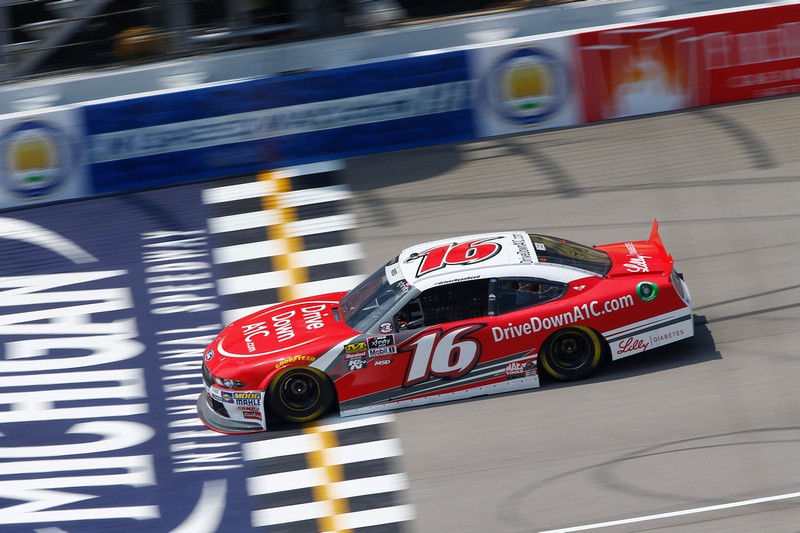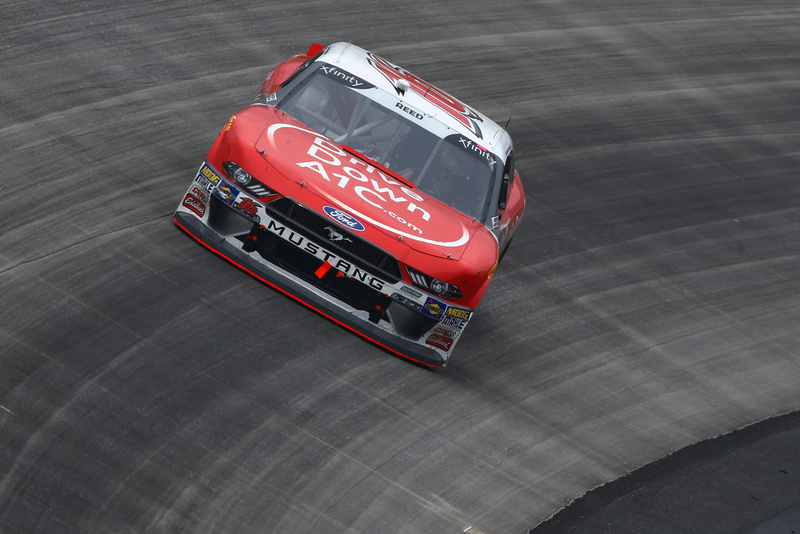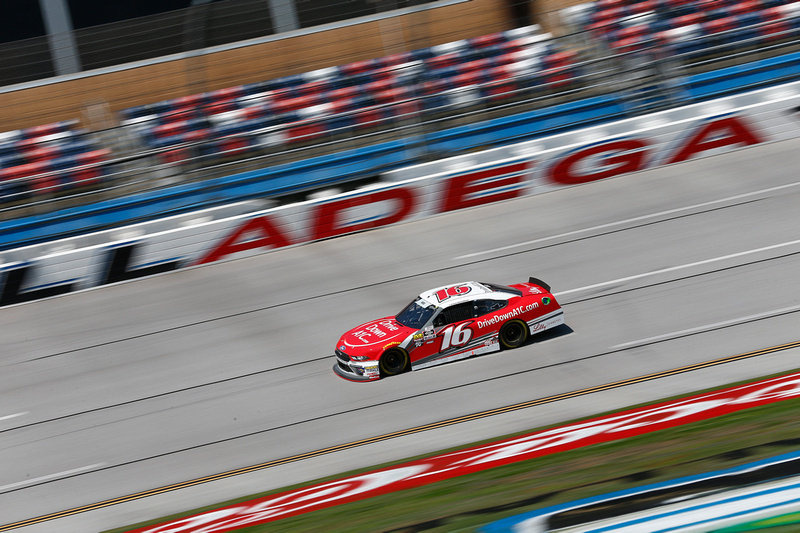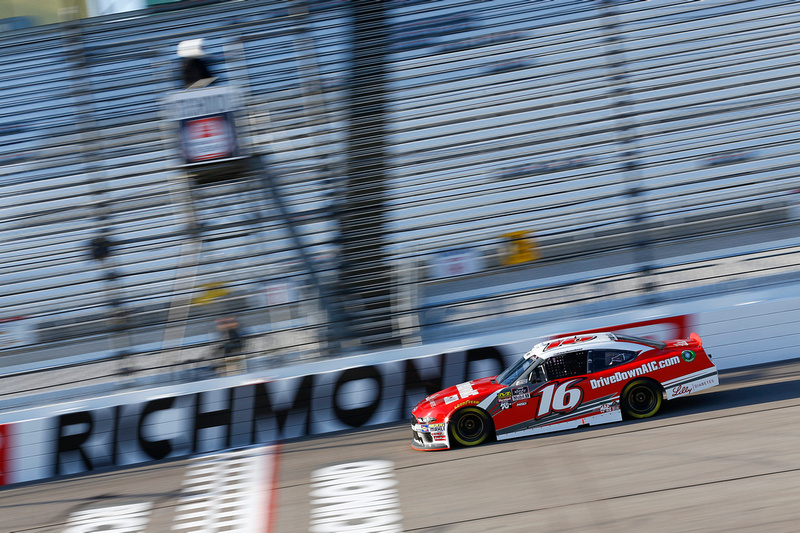06/04/2016
Blown Tire Leads to 33rd-place Finish for Reed at Pocono
LONG POND, Pa. (June 4, 2016) – Roush Fenway Racing driver Ryan Reed and the No. 16 Lilly Diabetes/American Diabetes Association team finished 33rd at Pocono Raceway on Saturday in a rain-shortened event after blowing a tire and making hard contact with another competitor, ending the team’s day.
“I am just thankful to Lilly Diabetes and American Diabetes Association for sticking with us,” said Reed. “I feel like we are making progress. These days are really tough with adversity from the start. We will not give up. I was hoping to get our Lilly Diabetes Ford Mustang in Victory Lane for everyone at home watching, but it just wasn’t meant to be today.”
Reed started the inaugural NASCAR XFINITY Series event at Pocono Raceway from the 23rd position after reporting the car was too loose in qualifying on Saturday morning. Before he rolled off pit road, he lost radio communication back to the team. Crew chief Phil Gould instructed Reed to use hand signals as he passed by the pit box to communicate how the car was handling.
After the field took the green, Reed reported he was loose by giving the signal to Gould as he passed by the pit box. He had raced his way up to the 17th position by Lap 4 and despite the inability to talk to the team, he was gaining ground.
The competition caution flew on Lap 15, giving the team a chance to make adjustments to the car. Gould brought Reed down pit road for four tires, fuel, a spring rubber, and a track bar adjustment. The team also handed Reed a new radio in an attempt to fix the communication issue.
Reed restarted 22nd on Lap 19 before the field was slowed by caution before another lap was complete. He raced up to 19th after the restart and was scored 17th by the next pit stop on Lap 29. The team pitted for gas and a track bar adjustment during that stop.
After the pit stop, the caution was again displayed. Reed was able to restart in the fourth position as he did not pit under the caution.
Soon after the restart, Reed made contact with a competitor, causing Reed to blow a right-rear tire and spin before receiving hard contact from an oncoming car. Because of the heavy damage, Reed was not able to drive the car back to the garage.
After being released from the care center, Reed returned to the garage as the team attempted to prepare the car. Unfortunately, the weather did not allow the team to return to the track, ending the race just past Lap 51 and relegating Reed to a 33rd-place finish.
Next up for Reed and the No. 16 Lilly Diabetes/American Diabetes Association team is Michigan International Speedway on June 11th.
About the Drive to Stop Diabetes
The Drive to Stop Diabetes campaign strives to educate people about living well with diabetes. The campaign encourages the millions of Americans who have diabetes to talk about it with their doctor, family, and friends and to actively manage their health.
About Lilly Diabetes
Lilly has been a global leader in diabetes care since 1923, when we introduced the world’s first commercial insulin. Today we are building upon this heritage by working to meet the diverse needs of people with diabetes and those who care for them. Through research and collaboration, a broad and growing product portfolio and a continued determination to provide real solutions—from medicines to support programs and more—we strive to make life better for all those affected by diabetes around the world. For more information, visit www.lillydiabetes.com or follow us on Twitter: @LillyDiabetes.
About The American Diabetes Association
The American Diabetes Association is leading the fight to Stop Diabetes® and its deadly consequences and fighting for those affected by diabetes. The Association funds research to prevent, cure and manage diabetes; delivers services to hundreds of communities; provides objective and credible information; and gives voice to those denied their rights because of diabetes. Founded in 1940, the Association’s mission is to prevent and cure diabetes and to improve the lives of all people affected by diabetes. For more information please call the American Diabetes Association at 1-800-DIABETES (800-342-2383) or visit diabetes.org. Information from both these sources is available in English and Spanish.










